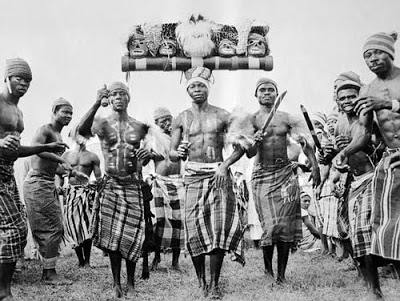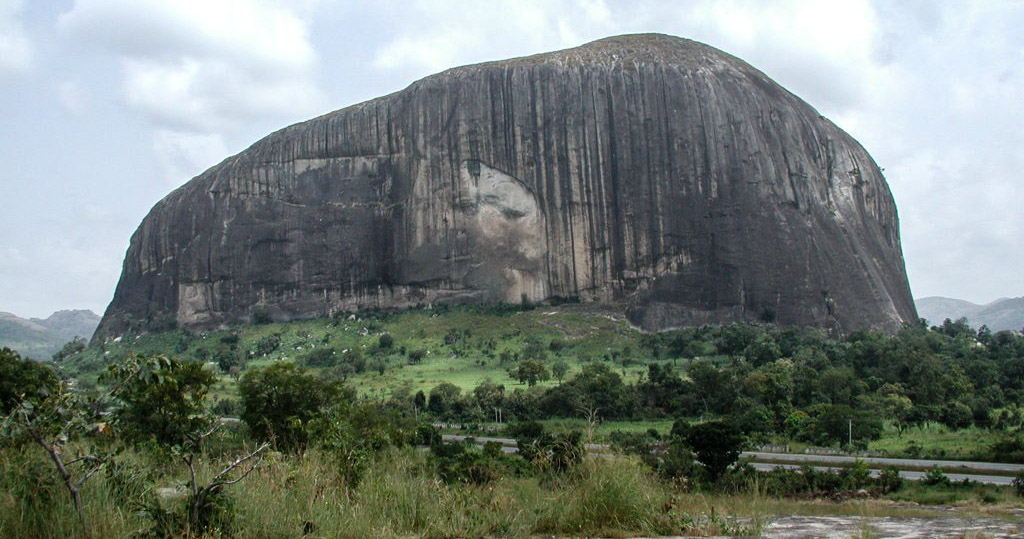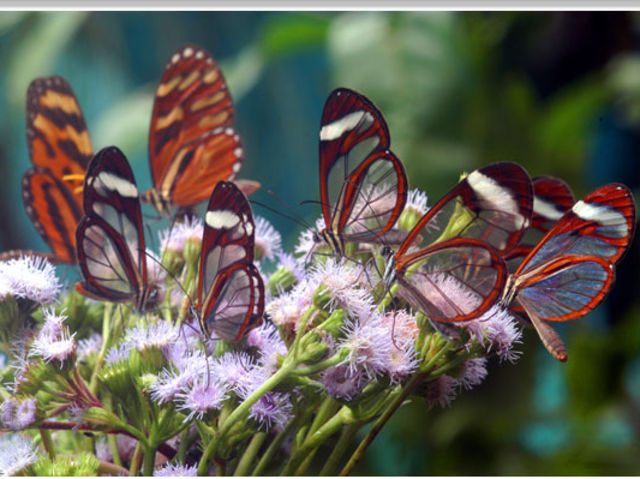Most of my searches when I was researching its neighbor Niger
also popped up a ton of hits for Nigeria. I was forced to sift through them to
find what I was really looking for. And now it’s relevant. This is a country
that has made world news many times, but most of the time when it does, it’s
not pleasant. In recent years, Boko Haram has pushed it back into the news once
more. And of course, there’s that Nigerian prince who’s been trying to e-mail
us to hold some of his money for a small kickback since the late 1990s. As
tempting as that sounds, I’ll pass. Just because I’m not really into scams. But
it leads me to wonder: it can’t be all bad and scammy, right? I know there’s
more to this country than this.
Similar to its neighbor Niger, the name Nigeria is stemmed from
the Niger River. The name Nigeria is often contributed to Flora Shaw, a British
journalist.
Nigeria is located in West Africa, surrounded by Benin to the
west, Niger to the north, a small border with Chad to the northeast, Cameroon
to the east, and a coastline on the Gulf of Guinea. The two main rivers that
run through Nigeria are the Niger River and Benue River, which come together to
form a Y. The country has quite an extensive array of landscapes: highlands,
plateaus, hills, mountains, coastal plains, swamps, savanna, and desert.
 |
| Pre-colonial Igbo |
One of the earliest civilizations there was the Nok Civilization,
who were known for their terracotta figures. Later on the Hausa and Kanem-Bornu
Empires prospered as trading posts between the Northern and Western African
regions. The Igbo Kingdom of Nri strengthened its presence during the 10th
century until the time the British arrived in the country. The Nri had a huge
influence on Igbo culture. The Yoruba Kingdoms flourished in the southwest
corner the country. The Benin Empire rose during the 15th and 16th
centuries. And then the Portuguese and the Spanish arrived. The city of Eko
later became known as Lagos (thanks, Portuguese). The Europeans who arrived
began to trade, and unfortunately, that included the Slave Trade. Ports along
the Nigerian coast were some of the largest slave trading posts. Slavery was
also present in their agricultural sector as well, mostly in the palm wine
production plants. By the late 1800s, British claims in Africa began to grow,
and they made their claim to Nigerian lands, and in 1901, it became a British
protectorate. There were several clashes between the Nigerians and the British.
The country eventually split into the Northern Protectorate, the Southern
Protectorate, and the Lagos Colony. Christian missionaries did arrive, and
while they did have their influence, the British were pretty insistent about
not interfering with the established Islamic influence on the culture,
especially in the north. After WWII, Nigerians began to push for their own
sense of nationalism and independence from the British, which they gained in
1960. However, the country was pretty divided along ethnic groups: Yoruba in
the west, Igbo in the east, and Hausa in the north. There were several coups in
the mid-1960s, which partly led to a civil war, lasting from 1967–1970. Oil
was discovered in 1970, but it was no match to the military juntas and
conflicts that lasted from that point to the end of the 1990s. However, they
regained their sense of democratic process in 1999, which ended over three
decades of military rule.
 |
| Abuja |
Lagos may be the largest city in Nigeria (its metro area is
actually the largest on the African continent), but the capital city is Abuja.
The capital actually used to be in Lagos, but it moved to Abuja in 1991. Abuja
is one of the many planned cities that are also national capital cities. While
Lagos is located along the coast in the southwest corner of the country, Abuja
is more centrally located. The city is the center of government, commerce, and
media, and there are several universities and entertainment spots throughout
the city.
In 2014, Nigeria passed South Africa as having the largest
economy in Africa. However, years of military rule, corruption, and
mismanagement gave the country a slow start. Today, it’s classified as a mixed
economy emerging market. Nigeria has the advantage of its abundant natural
resources, the second-largest stock exchange in Africa, their oil supply, and
well-developed sectors in transportation, communications, legal, and financial fields.
Agriculture still employs nearly 30% of its population, but manufacturing,
mining, and the service industry serve as an important source of available
jobs. However, there are many Nigerian families who depend on remittances from
abroad.
Because of Nigeria’s history of being a British protectorate,
the dominant religion is Christianity. Both Protestantism and Roman Catholicism
are found in the southern regions of the country, although the concentration
areas may differ. Islam is more prevalent in the northern areas of the country,
with Sunni Islam being the majority denomination. Other minor religions in the
country include animism, Hare Krishnas, and various Christian denominations
including Anglican and LDS/Mormon.
 |
| This is a Nigerian cartoon that teaches about African culture. I'm going to have to check this out. |
Nigeria is a multi-ethnic and multi-linguistic country. It’s
estimated that nearly 521 languages have been spoken in this country (nine of
these have become extinct). Many people in Nigeria speak several languages, and
although they may speak their own languages in the home, English is the
official language of the government, commerce, and education and serves as a
lingua franca in some cases. (There are a couple of English-based Creoles that
also serve as lingua francas.) The major languages spoken in Nigeria are Hausa,
Igbo, and Yoruba, but there are many others that are utilized in some capacity.
In reading articles about Nigeria, I came across a few things
that caught my attention. Nigerians were building boats for the Songhai
Empire’s fearless leader (based in Mali) Mansa Abubakari II’s expeditions to
the Americas decades before Columbus arrived. And apparently if you’re looking
to have twins, find a Nigerian, and more specifically someone of Yoruba linage:
their bloodline has the greatest chance of having twins. It’s also home to the
most butterflies in the world. And in a few days, I get to write about an
author who I first read in college and went on to read several of his books.
Up next: art and literature




Thanks for this wonderful content, i appreciate the effort
ReplyDelete